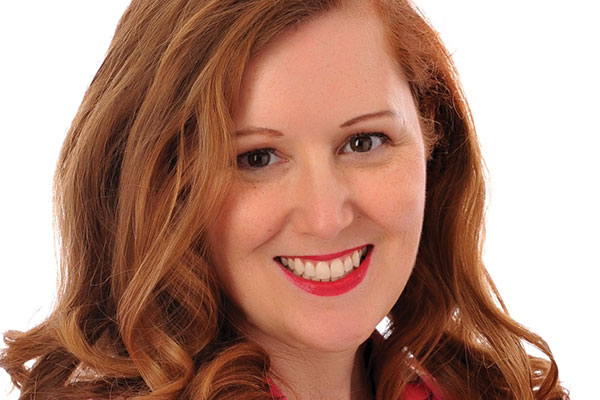How to be a Friend to Someone with Cancer
by Holly Bertone, CNHP, PMP
“Hi, friend. I wanted to let you know I have some bad news. I have cancer.”
This moment has the potential to change everything, even between the closest of friends, as the listener struggles with what to say or do next. But it shouldn’t. I get that you feel stuck between wanting to say the right thing and not wanting to say the wrong thing. You want to offer help, but also respect my privacy.
Here’s what I need you to know. While going through cancer treatment, I may be needy; I may push you away. I might be depressed and angry about the diagnosis, and I’m probably obsessed with finding out everything I can about my disease. These are all normal reactions and emotions. In this moment, what I need from you is to listen.
♦ Don’t offer advice unless asked specifically. Everyone’s diagnosis is different. Everyone’s treatment is different. This is a very personal journey, and the decisions I make are between me, my doctors, and my god.
♦ Don’t tell me that I will be fine. I may not be. I might be facing mortality. Of course, you mean well, but those words belittle the severity of the treatment I’m facing. Don’t tell me you know what I am going through unless you’ve been through it too. Tell me you love me. Tell me you’re here for me. Tell me you’ll help take care of my family.
♦ Do encourage me to get a second opinion if I’m not happy with my doctor. Do encourage me to go to the doctor in the first place if I find a weird lump or something isn’t quite right.
♦ Know that you can’t take the cancer away from me. You can’t take away the pain, the anger, the fear. I sometimes think that loved ones have a tougher time with cancer than does the person who’s been diagnosed. The survivor gets to fight every day, and that can be empowering. You’re forced to watch your loved one go through something horrible while being unable to rescue them from it.
Don’t tell me you know what I am going through unless you’ve been through it too.
♦ Send me a card or an email. Make it cheery or funny. I need to laugh. Laughter kills cancer cells – or at least it feels like it does.
♦ When I post on Facebook, give me a like or a word of encouragement. Even if I’ve been in treatment for a while and it doesn’t seem like I have anything new to say, I need to see that my family and friends are in solidarity with me.
♦ Offer to help in specific ways. Offer to drive me to appointments and take notes. Do something for my kids, do the laundry, wash my dishes, research organizations that help cancer survivors (for example, did you know there are groups that clean cancer patients’ homes for free?), hire a caretaker … the list is endless. If I put up a strong front and say I don’t need help, then give me two choices of how you are going to help: “Do you want me to bring over dinner on Monday night or stop by on Tuesday and help with the laundry?”
♦ Remember my spouse and children. They need your support just as much as I do, if not more. Give them some time off. Give them a treat. Let them talk or vent.
♦ Be conscientious with your gift giving. If I’m going through chemo, my sense of smell is going to be altered. Don’t send flowers or candles. These “good” smells might make me feel nauseated. Speaking of smells, please don’t wear perfume when you visit me. My sense of taste will likely be altered too, and I may not have an appetite. My family will still need to eat, though, so please feel free to feed them. If you want to buy something, send a care package with healthy food and snacks. I’m also going to need practical items like a surgery pillow, Biotene, cleansing wipes, magazines, or comfy slippers.
♦ Pay attention to my cues when you speak with me. Follow my lead, and respect my wishes.
Most important, you can be patient with me. You can pray. You can just be. That’s what I need the most.
Holly Bertone (pictured above) is a breast cancer survivor and patient advocate who has published three books on cancer. You can find Holly blogging at pinkfortitude.com, where she writes about healthy living and life after cancer.
This article was published in Coping® with Cancer magazine, January/February 2017.


